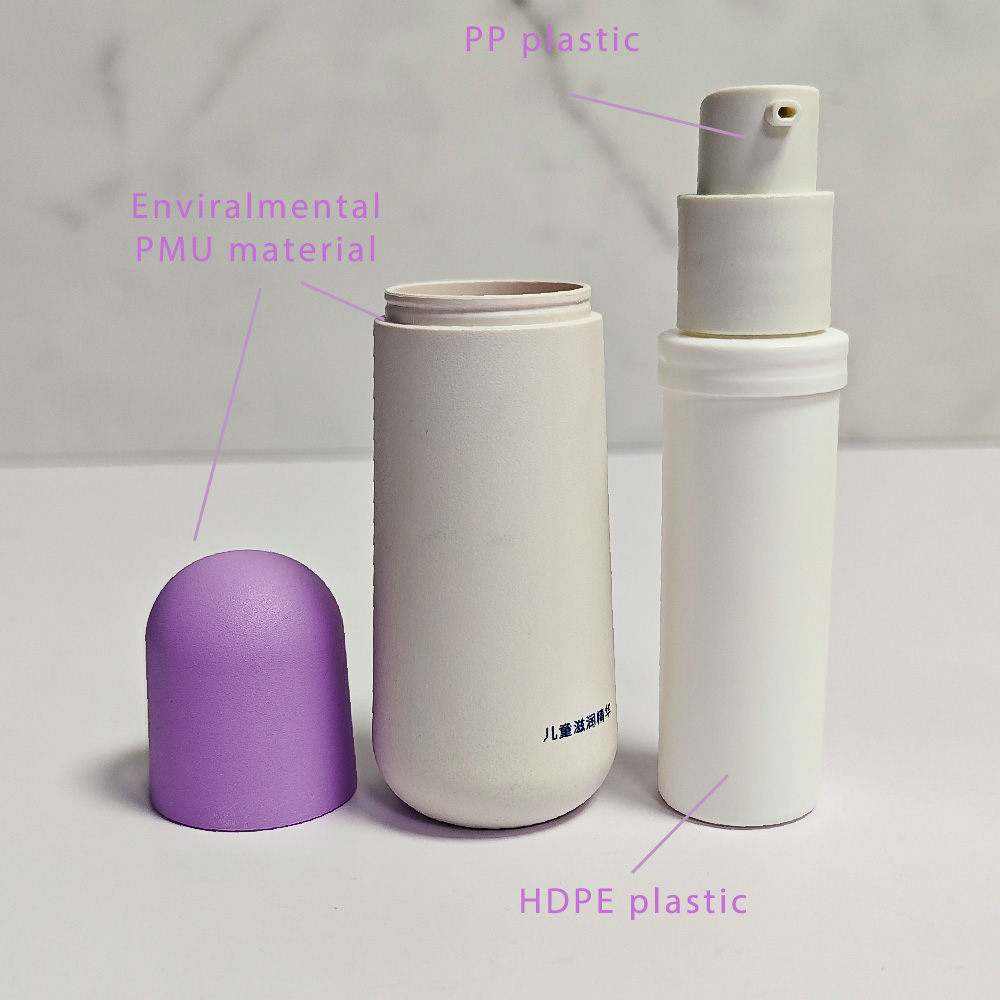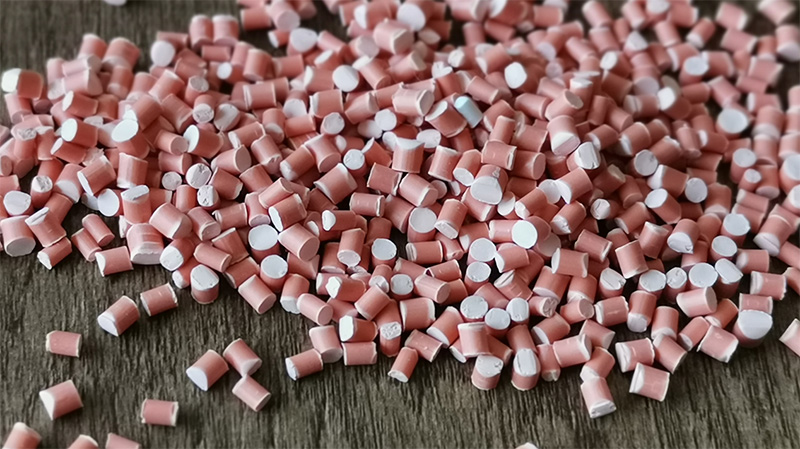In recent years, the world has faced an increasing urgency to address the environmental impact of plastic waste, particularly from single-use plastics that take centuries to degrade. One promising solution to this problem is the development of PMU Material, an innovative, environmentally friendly material designed to replace traditional plastic products with biodegradable alternatives. Made primarily from inorganic materials such as calcium carbonate (CaCO₃), combined with modified biodegradable polymers, PMU Material represents a significant step forward in sustainable packaging and product development.
Contents
What is PMU Material?
PMU Material stands for “Inorganic Biodegradable Material” and is a cutting-edge composite material designed to be used as a direct substitute for conventional plastic pellets in manufacturing. This unique material blends natural inorganic substances, such as calcium carbonate, with specially modified biodegradable polymers to create a material that not only has functional similarities to plastics but also boasts significant environmental benefits.
Key Characteristics of PMU Material
- Direct Replacement for Traditional Plastic Pellets PMU Material can seamlessly replace traditional plastic pellets in a wide range of applications. The unique composition of PMU material allows manufacturers to continue using existing production processes while achieving the environmental advantages of biodegradable packaging. This makes the transition from traditional plastics to PMU Material both practical and efficient.
- Non-toxic and Safe for Incineration One of the main concerns with traditional plastic waste is its potential to release toxic gases when incinerated. In contrast, PMU Material can be safely incinerated without emitting harmful or toxic gases. This makes it a safer option for waste disposal, especially in regions where waste-to-energy practices are used to reduce landfill waste.
- Biodegradable After Use Unlike conventional plastics, which can persist in the environment for hundreds of years, PMU Material is designed to degrade naturally after use. According to testing, PMU material can degrade over 90% in approximately 800 days. This biodegradability ensures that products made from PMU Material will break down in landfills or compost environments, significantly reducing their impact on the environment. This feature is particularly important for industries focused on reducing their carbon footprint and mitigating pollution.
- Zero-Emission Production Process The manufacturing process of PMU Material is designed to be environmentally responsible, with zero emissions during production. This not only reduces the carbon footprint of the manufacturing process itself but also ensures that the production of PMU Material does not contribute to environmental degradation. In addition, the use of inorganic raw materials like calcium carbonate further minimizes the environmental impact, as these materials are abundant, non-toxic, and environmentally benign.
Applications of PMU Material
PMU Material is poised to transform various industries, particularly those that rely heavily on plastic packaging. Some of its potential applications include:
- Packaging: PMU Material can replace single-use plastic packaging, such as plastic bags, bottles, and containers, offering a more sustainable alternative without compromising functionality.
- Consumer Goods: From personal care products to household items, PMU Material can be used in the production of biodegradable packaging for a wide range of consumer goods.
- Industrial Use: In industrial applications, PMU Material can be used in manufacturing components, containers, and other products that require a durable but environmentally responsible material.
PMU Material in Cosmetics Packaging: A Bright Future
The cosmetics industry is one of the largest sectors relying heavily on plastic packaging, especially single-use plastic containers such as bottles, tubes, and jars. With the growing consumer demand for more sustainable products and increasing regulatory pressure on plastic waste, the cosmetics industry is seeking innovative alternatives to reduce its environmental impact. PMU Material offers a promising solution that can help brands transition to eco-friendly packaging without compromising product quality or consumer experience.
- Eco-friendly and Aesthetic Appeal PMU Material’s biodegradable nature makes it an ideal choice for cosmetics packaging, especially for brands focused on sustainability. Consumers are becoming more conscious of the environmental impact of their purchases, and many are now demanding products with minimal plastic packaging. By adopting PMU Material, cosmetics brands can meet this demand, offering eco-friendly, biodegradable alternatives that resonate with today’s eco-conscious consumer. Furthermore, PMU Material’s aesthetic appeal ensures that packaging remains visually attractive, maintaining the premium look and feel that cosmetics brands require.
- Replacing Single-use Plastics The beauty industry is known for its heavy reliance on single-use plastic packaging for products like facial cleansers, lotions, shampoos, and other skincare or makeup products. PMU Material’s ability to replace traditional plastics without compromising functionality is a game changer. Whether used in containers, tubes, or caps, PMU Material can be molded into various shapes and sizes, offering a versatile solution that fits the diverse needs of cosmetics packaging. By replacing single-use plastics with biodegradable alternatives, brands can significantly reduce their contribution to plastic pollution.
- Brand Image and Consumer Loyalty The adoption of PMU Material can help cosmetics brands differentiate themselves in an increasingly competitive market. Consumers are more likely to support brands that align with their values, especially those focused on environmental sustainability. By switching to PMU Material, brands can enhance their reputation as environmentally responsible, boosting consumer loyalty and attracting a broader audience of eco-conscious buyers.
- Compliance with Regulatory Standards As governments around the world tighten regulations on plastic waste, adopting sustainable packaging is becoming not just a consumer preference but a business necessity. PMU Material provides a forward-thinking solution that can help cosmetics companies stay ahead of regulatory changes. By embracing biodegradable packaging now, brands can ensure they are prepared for the increasing legislative push toward plastic reduction and waste management.
- Customization and Versatility In the cosmetics industry, packaging design is an essential element of branding and marketing. PMU Material offers a wide range of customization options, allowing brands to create packaging that meets both functional and aesthetic requirements. From sleek bottles to intricate caps and lids, PMU Material can be molded into various shapes and sizes, providing endless possibilities for cosmetic packaging design while maintaining its biodegradable properties.
Environmental Impact and Benefits
The environmental benefits of PMU Material are clear. By incorporating natural inorganic substances like calcium carbonate and combining them with biodegradable polymers, PMU Material offers a solution to the growing plastic waste crisis. Some of the most notable environmental advantages include:
- Reduced Plastic Pollution: PMU Material offers a biodegradable alternative to traditional plastics, helping to reduce plastic pollution in landfills and oceans.
- Lower Carbon Footprint: The zero-emission production process ensures that PMU Material has a significantly lower carbon footprint compared to traditional plastic manufacturing.
- Sustainable Waste Management: The material’s ability to safely degrade after use, combined with its non-toxic incineration properties, makes PMU Material a more sustainable option for waste management.
Challenges and Future Outlook
While PMU Material shows great promise, its widespread adoption will depend on several factors. These include improving the scalability of production processes, reducing costs for manufacturers, and ensuring that the material meets the performance standards required for various applications.
Nonetheless, the growing demand for sustainable products and eco-friendly packaging, alongside increasing regulatory pressure on plastic waste, makes PMU Material a highly viable alternative. As technology advances and production methods become more efficient, it is likely that PMU Material will play an essential role in the transition to a more sustainable, plastic-free future.
Conclusion
PMU Material represents a significant breakthrough in the quest for more sustainable materials. By combining natural inorganic materials like calcium carbonate with modified biodegradable polymers, PMU Material offers a promising solution to the environmental challenges posed by single-use plastics. With its potential for widespread application, biodegradable nature, and zero-emission production process, PMU Material has the power to revolutionize industries and pave the way toward a more sustainable future.
In the cosmetics industry, PMU Material’s unique properties make it an ideal candidate for replacing plastic packaging, helping brands align with consumer demand for eco-friendly products. As the industry moves toward sustainability, PMU Material will play an increasingly important role in shaping the future of cosmetic packaging.





